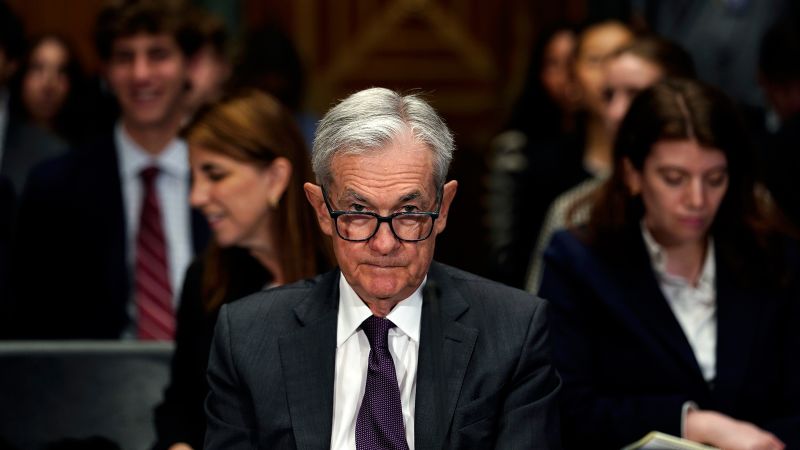Federal Reserve Chair Jerome Powell has faced an unprecedented situation regarding his leadership amid mounting pressure from President Donald Trump. According to multiple associates and allies, Powell has expressed his determination to resist the president’s relentless calls for his resignation due to his refusal to lower interest rates. The tension stems from Trump’s criticism, which not only questions Powell’s capability but also threatens the tradition of the Federal Reserve as an independent institution.
Powell believes that his decision to remain in his position is crucial not just for himself but also for the integrity of the Federal Reserve. By stepping down, he argues, it would signal a troubling shift away from the organization’s long-standing commitment to political neutrality. According to Senator Mike Rounds, a Republican from South Dakota, Powell strongly conveys that resigning under current circumstances would diminish the Fed’s independence, thus influencing its ability to make unbiased economic decisions.
The focus of Powell’s steadfastness emphasizes the importance of maintaining the Federal Reserve’s autonomy in the face of political pressures. His resolve to complete his term, which runs until May 2026, is viewed as both a personal and institutional stance. The pressures on the Fed have escalated notably as Trump has publicly demanded interest rate cuts, framing it as a necessary action to invigorate the economy, particularly as the midterm elections approach.
With a background in the George H.W. Bush administration, Powell is characterized by associates as a no-nonsense, data-driven decision-maker who has historically adopted a non-partisan approach. His previous support in the Senate, particularly during his nomination by Trump in 2017, depended on this image of being a stable, pragmatic figure in the tumultuous world of politics. However, the very traits that won him the chairmanship and public respect as a “straight shooter” have now attracted ire from Trump, who has become frustrated with Powell’s resistance to his economic directives.
Trump’s rhetoric has taken a hostile turn, openly criticizing Powell and expressing a desire for his resignation. The president has characterized the Fed chair as ineffective, describing interactions with Powell as akin to “talking to a chair.” His criticisms have intensified, with Trump labeling Powell as “stupid” and a “numbskull,” thereby heightening the anxiety within the financial markets regarding Powell’s position.
Alongside Trump’s personal diatribes against Powell, there has been a concerted effort from the White House’s supporters to undermine Powell’s credibility. This includes highlighting the costs associated with the Federal Reserve’s renovation project. The ongoing public scrutiny could be seen as an attempt to create a narrative suggestive of financial incompetence within the Fed and align it with the struggles of average Americans facing economic challenges.
Interestingly, Trump’s public visit to the Fed for a construction tour only seemed to reinforce Powell’s position, as he maintains focus on implementing sound monetary policy without yielding to external pressures. Following this visit, a surprisingly calm Trump suggested that discussions with Powell had been beneficial, although the underlying tensions remain palpable. The expectation is that the Fed will hold interest rates steady, a decision likely to provoke further dissatisfaction from Trump.
Despite the pressures exerted from the White House, Powell has reiterated his commitment to economic principles that have historically guided the Fed’s decisions. This steadfastness has garnered praise across party lines, even from those within the Democratic Party who previously expressed concerns over his strategies regarding interest rates. Observers argue that Powell’s continued leadership underscores a commitment to preserving the integrity of the Federal Reserve as an independent institution, one that operates above the political fray.
Senior figures, such as Jared Bernstein, have lauded Powell’s choice to prioritize the Fed’s mission over personal comfort, viewing his reaction to Trump’s incessant criticisms as a testament to his resilience. Republicans, too, have planted roots of support for Powell, underscoring the potential market turmoil that could stem from any hint of coercion within the Fed’s decision-making.
In summary, Powell’s ongoing tenure amid hostile political conditions reflects his resolve to uphold the Federal Reserve’s independence and maintain economic stability. As pressure mounts from various political factions, observers remain hopeful that he will stay committed to his declared intentions, ensuring the Fed remains insulated from direct political influence. The broader economic implications of this struggle could define not only Powell’s legacy but also the landscape of American monetary policy in the years to come.











